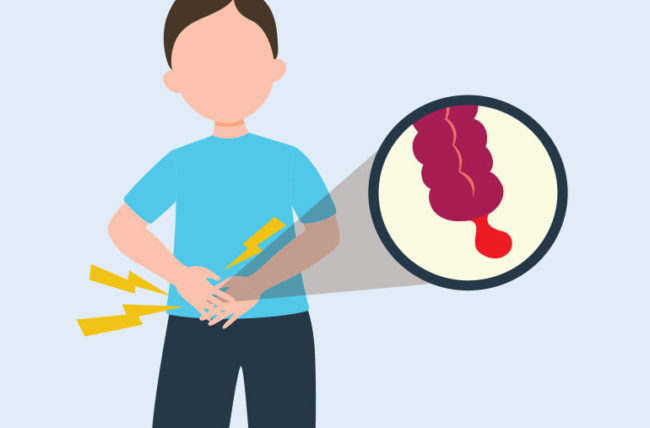How To Treat Appendicitis

A prompt surgery for removing the appendix can be considered as a medical emergency. An inflamed appendix will burst or perforate if it is left untr…
Hello there! If you are new here, you might want to subscribe to the RSS feed for updates on this topic.
Tweet
A prompt surgery for removing the appendix can be considered as a medical emergency. An inflamed appendix will burst or perforate if it is left untreated. Some infections materials from the abdominal cavity can lead to peritonitis.The peritonitis can be fatal unless it is treated quickly with strong antibiotics. The pus-filled abscess forms outside the inflamed appendix.
Appendicitis can be often mistaken with other affections like gastroenteritis, but it seems that in appendicitis the nausea and vomiting begin after the abdominal pain had installed.
Small children are the hardest patients to diagnose because in their case appendicitis does not manifest so clear like in adult patient. Sometimes they complain of a hip pain or they refuse to walk. After a while vomiting will appear.
Let us see the symptoms of appendicitis first. When the appendix is infected by the bacteria, there will be great pain surrounding the bellybutton. And even your kids will get mild fever and have bad appetite.
Even for the infants, there is possibly swelling of the abdomen. More often, appendicitis is not always so serious that it needs to remove the appendix. Most of the times, if it can be diagnosed very early, some medicine or injection can cure it. However, there are still possibilities that it will relapse after a short time.
Appendicitis is a digestive disorder manifested by a blockage of the connection between the appendix and the rest of the intestines. The inflammation can be caused by infections in the body or by foreign bodies in the appendicle lumen. If not removed in time by surgery, it can perforate and lead to major infections spread in the entire abdomen.
The greatest change in general surgery techniques in the last period of time was the use of laparoscopy for different types of interventions. Laparoscopic method was quickly applied also in surgery of acute appendicitis. Although it provides most useful and rapid information through mini invasive incisions, Laparoscopy hasn’t been adopted as an exclusive surgical method.
Obstruction of the lumen leads to bacterial overgrowth and mucous secretion leading to distension and increased pressures, gradually rising above lymphatic and then venous pressures culminating in their obstruction also. This perpetuates the oedema and leads to ischaemia and eventually necrosis (gangrene) of the appendiceal wall.
Fortunately appendicitis is not contagious and poses no risks to others. If the abdominal pain, fever or vomiting are present they need the doctor control.If the pain continue for more than 4 hours an urgent medical evaluation is required.
Trending Health Topics
- ADHD
- Allergies
- Arthritis
- Bipolar Disorder
- Bunions
- Car Accidents
- Chron's Disease
- Common Cold
- COPD
- Depression
- Dry Skin
- Dry throat
- Eczema
- Fungal Infection
- GERD
- HIV/AIDS
- Hypertension
- Irritable Bowel Syndrome (IBS)
- Multiple Sclerosis
- Osteoarthritis
- Psoriasis
- Rheumatoid Arthritis
- Skin Disorders
- strep throat
- Type 2 Diabetes
- Uncategorized